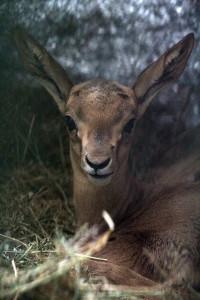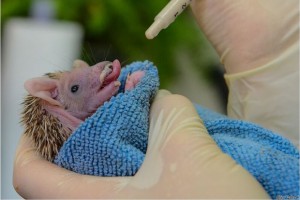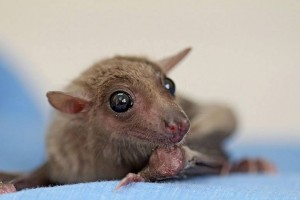Finding cubs
If you have found a wild cub, remember that in most cases the cub was left there by it's mother,please do not interfere!
If you fear for his life please take extra time to observe him from afar. If it looks like a life-threatening case please contact the NPA Hotline *3639 before handling him!
Every wild animal belongs to the wild, therefore handling wildlife in your house without a permit is illegal and can risk the animal's life.
Gazelle Fawns

Every year, the IWH admits dozens of fawns. In most cases, they were taken from the wild without reason, due to travelers good will to help them, but usually their mother left them in the field while trying to forage, intending to return soon.
Raising fawns is a hard and long process since they are a very gentle species with very specific needs. Our staff dedicates a lot of time and resources to raise them in a way that prevent imprinting in order to release them back to the wild at the end of the process.
If you find a fawn in the wild please DO NOT take him! His mother is in the area!
* Please, DO NOT bring Ruminants (Gazelles, Ibexes etc..) to the hospital without contacting us before!
Ruminants have a high potencial of carrying Foot and Mouth disease, it is not allowed to bring a Ruminant into the Safari zone before testing him for FMD.
Baby Hedgehogs

Dozens of baby hedgehogs are brought to the IWH every spring. These babies are from two species: Southern white-breasted hedgehog (Erinaceus concolor) and Long-eared hedgehog (Hemiechinus auritus).
Both species are very common throughout the country, even in urban areas. Therefore it is not rare to come across them.
In the case you have found a baby hedgehog in the wild, please search carefully for his nest, it is most likely he didn't go far from it.
Keep in mind that his best chance to survive is to return him to his mother- please take the time to observe and look for the nest before taking him.
Baby Bats

34 different species of bats live in our small country. Only one of them represent the suborder of Megabats: The Egyptian Fruit Bat (Rousettus aegyptiacus) -which is also the only fruit bat in Israel.
Fruit bats are very common in urban areas and cities, therefore many baby fruit bats are brought to the IWH every year.
If you have found a baby bat on the ground please try to return him to his mother; the mother recognizes her offspring's unique calls and comes back for him!
Please try to put the baby bat on a tree near by. In the case that the mother is fine, she will come back to collect him.


